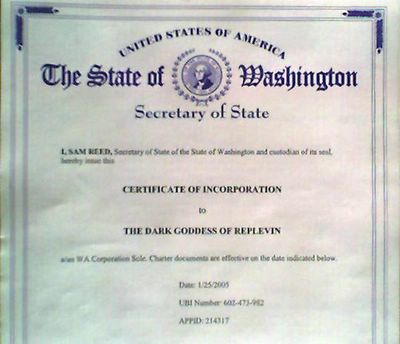Thanks to the good auspices of someone presumably sympathetic to the plaintiffs in the lawsuit against the Archdiocese of Boston, Bernard Cardinal Law's deposition transcript is just a click away on an AP wire site. Massachusetts Lawyers Weekly has it too. In the old days, just a few short years ago, I had to rely on a friend of a friend to get my hands on a grubby (in several senses) xerox of Paula Jones's complaint against then-president Clinton. Who needs friends anymore? I have google.
In reviewing this transcript, I find myself mulling over Hannah Arendt's proposition about the banality of evil, and wondering if the converse (or is it the contrapositive) applies and what is banal is evil. Rigid corporate hierarchies like those of the Catholic church are certainly banal enough. Maybe that makes them evil. I also find myself wondering whether the Archdiocese of Boston couldn't have rounded up some more dignified counsel for ol' Bernie. Noting a continuing objection to all the questions on first amendment grounds? Maybe in Massachusetts they don't have that silly rule about material being discoverable, whether or not admissible, if it leads to the discovery of admissible evidence? They certainly don't have their rules of civil procedure posted on their court website, so I couldn't confirm that.
Despite their grand speech at the beginning of his depo, Law's lawyers were unable to train the man into the most basic good habit of a witness--wait until the question is complete before you begin answering it. There were so many fragments in the transcript, the court reporter would have been sweating were it not for the comfort of a video feed. Probably no one ever tells a cardinal not to interrupt. Law's habits were certainly not broken by any hasty prep session his lawyers might have undertaken. Of course, Cardinal Law gives the impression of never really listening to anybody, anyway, so why should his own counsel and the opposing lawyers be any exception?
As long as I'm critiquing here, what about plaintiffs' counsel? They haven't given any signs so far of being students of the great Pozner and Dodd on the science of cross-examination. Law's lack of memory of such things as a letter on which the word "urgent" appears in his own handwriting is so legally juicy that it is hard to understand why he wasn't subjected to a punishingly meticulous cross-examination on the subject. His denials were so incredible, in fact, that he stopped the release of additional transcripts for thirty days. What I would really like to cross-examine Law about, myself, is his claim that a group of laypeople had the authority to veto a cardinal's financial decision about settling a case. All sorts of questions of apparent authority and actual authority.
In the era of the Internet it's much harder now for professionals to make mistakes in public. I freely admit to knowledge of several hearings, at least, in my day, in which my participation was either ers and ums, or a pure word salad. I'm lucky that I'm no one in particular and so one has ever ordered up those transcripts and slapped them on the web either because they're of public interest (or even just to embarrass me). But Cardinal Law and this multimillion-dollar renegment is a big deal. You would think the legal talent on both sides would have been closer to the top of their games.

No comments:
Post a Comment